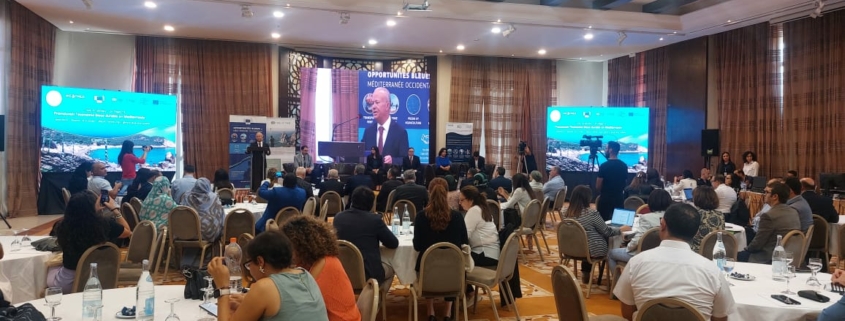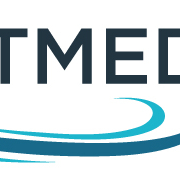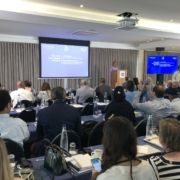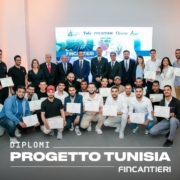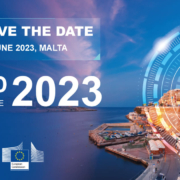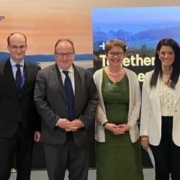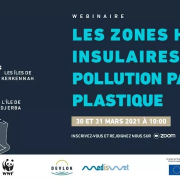WestMED, RebootMED and BlueMissionMED boost sustainable blue economy efforts amongst stakeholders in Tunis
On 4 November 2024, the WestMED National Event in Tunisia on the blue economy was organised in partnership with the REBOOTMED project and the BlueMissionMed project. The objective was to enhance synergies between three major European projects that focus on strenghtening the sustainable blue economy in the region and discuss major developments related to specific fields: greeen shipping, fisheries & aquaculture and tourism.
This event was also organised in close collaboration with the Tunisian national coordinator of the WestMED Initiative, the General Secretariat for Maritime Affairs, the Ministry of Transport and the Ministry of Agriculture and Fisheries.
The event brought together more than 130 guests, including the EU delegation in Tunis, sectoral managers involved in the different themes, national authorities, researchers, universities and civil society.
Regarding green shipping, The WestMED presentation focused on Tunisia’s progress in implementing the energy transition in the Tunisian maritime fleet and adapting port infrastructure to this transition. Discussions in the afternoon workshop highlighted the need to draw up a roadmap for adapting ships and port infrastructure to the new regulatory requirements of the IMO and the European Union.
Participants insisted on the urgency of developing this roadmap, if the deadlines required by these regulations are to be met. The multitude of alternative fuel choices available requires the collaboration of transport and seaport stakeholders to make this transition a success with minimal negative effects.
The second theme discussed was the development of sustainable aquaculture and fisheries and the need to use new technologies in this field, while preserving the environment and ecosystems. The workshop worked in four sub-groups to determine how the fisheries and aquaculture sector contribute to the achievement of all the Sustainable Development Goals (SDGs), as well as the measures to be taken to overcome the difficulties and challenges hindering the achievement of the SDGs in this sector. (overview outcomes)
The third theme was Sustainable tourism. The Ministry of Tourism presented its vision for Tourism 2035 (see press article), as well as new initiatives for developing sustainable tourism; in particular thematic routes and the Destination Management Organisation (DMO). Next to this, the Ministry of the Environment presented its roadmap for the blue economy, detailing the priority actions to be implemented to ensure sustainable blue tourism. The Sahel and Sahara Observatory also highlighted the contribution of Ecosystem Accounting of Natural Capital. Closing the session on tourism, the Agence du Tourisme de Corse presented the best practices adopted by the region to encourage the transition towards sustainable and responsible tourism.
These are some of the main recommendations that came out of the ensuing discussion:
- EU: Allocate specific funding for sustainable tourism and prioritise green practices.
- Programmes and initiatives, including the new WestMED Technical Group on Sustainable Tourism: Improve project and programme coordination, promote nature tourism throughout the year, and develop legal frameworks for pescatourism.
- Regional involvement: Empower regions to define and implement sustainable tourism strategies.
- Public-private partnerships: Strengthen partnerships to foster innovation, resilience, and adaptation to climate change.
Guests representing both public and private sectors, including the the Tunisian National Tourist Office, the Mauritanian Ministry of Tourism, the Sicilian Region, and the Chamber of Commerce and Industry of CAP BON (TN), shared insights on how these recommendations fit into their strategies, emphasising product diversification, local capacity building, and off-season tourism promotion.
The event underscored the need for continued collaboration to integrate these recommendations across the Mediterranean and a good example of how three Blue EU initiatives can bundle their collective efforts to help make this happen.

